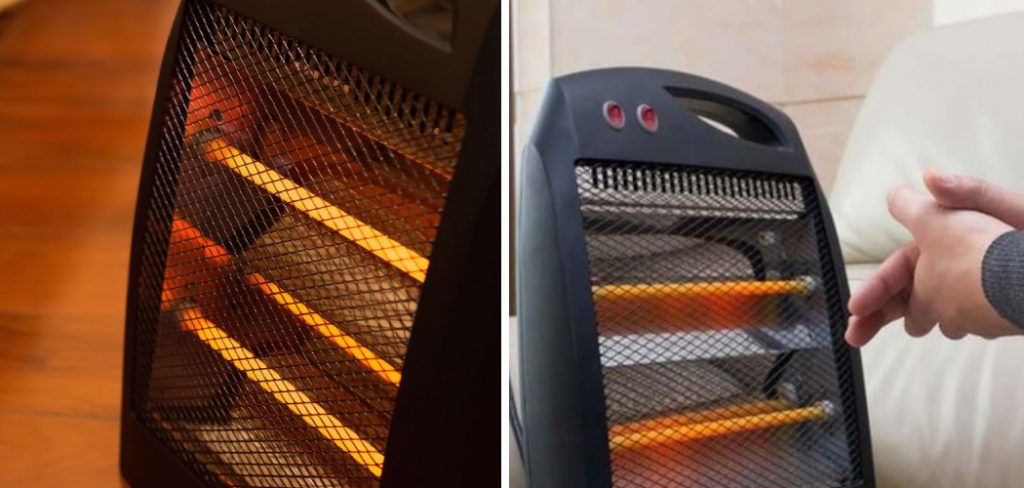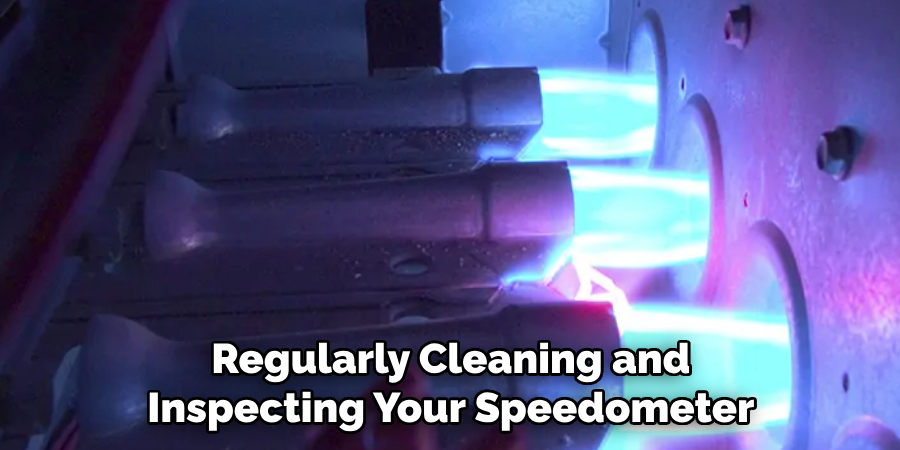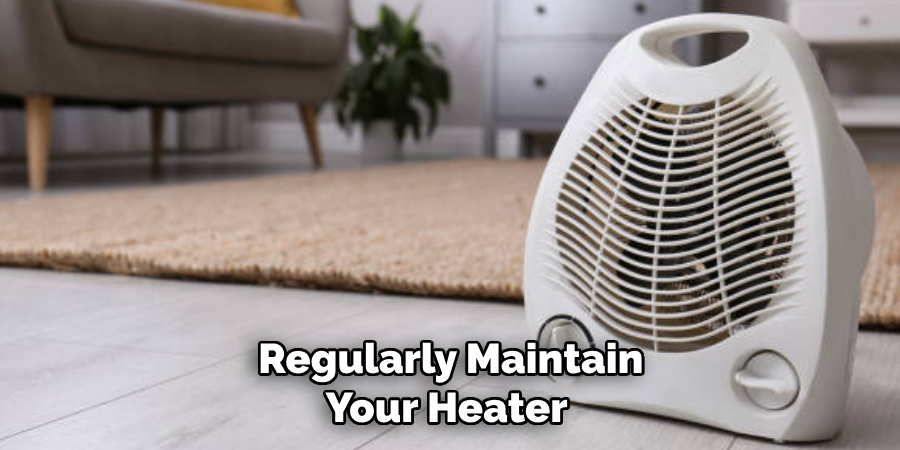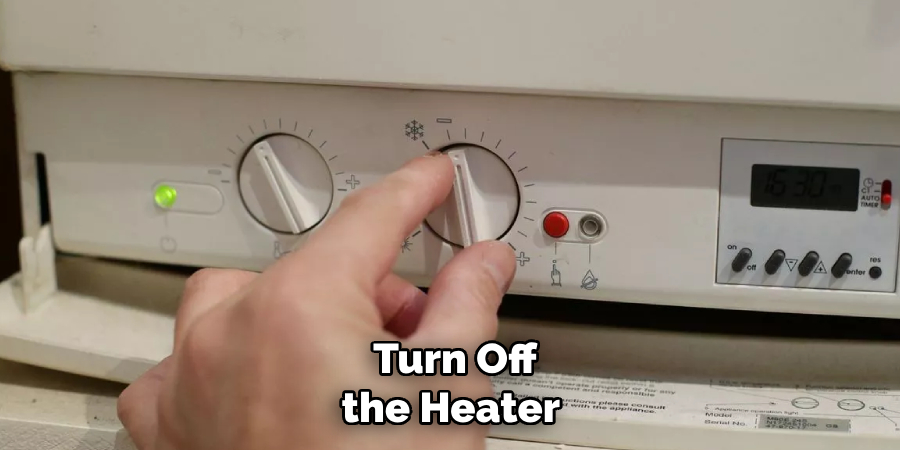Are you dealing with a broken or malfunctioning heater during the colder months? We know how tough it can be to have to make do without reliable heat in your home. However, instead of despairing, take heart – there are several steps you can take to potentially fix your heater and get back the warmth that you need!

In this blog post, we’ll provide helpful advice on how to fix a broken heater and determine whether repairing it is worth it in comparison to getting a new one. Read on for more information about diagnosing and repairing (or replacing) a broken heater.
9 Best Ways on How to Fix a Broken Heater
1. Check the Thermostat:
One of the first things to check when your heater stops working is the thermostat. Make sure that it is set to the correct temperature and mode (heating or cooling). If it seems like there are issues with the thermostat, you can try replacing the batteries or cleaning any built-up dirt or debris from the inside. This is a simple fix that could save you from having to call a professional.
2. Replace or Clean the Air Filter:
A dirty air filter can cause your heater to malfunction, so if it has been a while since you last checked or replaced it, now would be a good time to do so. A clogged filter can restrict airflow and put extra strain on your heating system, making it less effective. Make sure to clean or replace your air filter at least once every three months.
3. Check the Circuit Breaker:
If your heater is not turning on at all, check the circuit breaker to see if it has tripped. If that is the case, simply reset it and try turning on your heater again. If this continues to happen, it may be a sign of a larger electrical issue and you should call an electrician. Checking the circuit breaker is an easy and quick step that could potentially save you from having to pay for professional help.
4. Inspect the Pilot Light:
Older gas heaters may have a pilot light that needs to be manually lit. If your heater is not turning on, make sure to check if the pilot light is still lit or if it needs to be reignited. If the pilot light keeps going out, there may be an issue with the gas supply or thermocouple and you should contact a professional for help.

5. Check Gas Supply:
If your heater is fueled by gas, make sure that the gas supply is turned on and that there are no issues with the gas line. Sometimes, issues with the gas supply can cause your heater to malfunction, so it is important to rule this out as a potential issue. Checking the gas supply is a simple step that could save you time and money in the long run.
6. Clean the Burners:
If your heater has been running for a while, the burners may become dirty or clogged with debris, affecting their efficiency. You can easily clean the burners by following the manufacturer’s instructions or using a soft brush to remove any buildup. Regularly cleaning the burners can help your heater run more effectively and prevent future malfunctions.
7. Check for Leaks:
If you have a furnace or gas-powered heater, it is important to check for any leaks in the system. You can do this by using a mixture of soapy water and checking for bubbles around connections and joints. If you find a leak, it is important to contact a professional immediately, as gas leaks can be dangerous and should not be handled by amateurs.
8. Call a Professional:
If you have tried all of these steps and your heater is still not working, it may be time to call in a professional. They will have the expertise and tools necessary to properly diagnose and fix any issues with your heater. While this may cost more than attempting DIY fixes, it can save you from potential safety hazards or cause further damage to your heating system.
9. Consider Replacement:
If your heater is older or has been experiencing frequent malfunctions, it may be time to consider replacing it altogether. A new heater will not only provide more reliability and efficiency, but it can also save you money in the long run on maintenance and repair costs. Consult with a professional to determine if repairing or replacing your heater is the best option for you.

Following these tips can help you diagnose and potentially fix a broken heater. However, if at any point you feel uncomfortable or unsure about fixing your heater yourself, it is always best to call a professional for assistance. Remember to regularly maintain your heater to prevent future breakdowns and always prioritize safety when dealing with heating systems. Stay warm and cozy this winter!
Additional Tips and Tricks to Fix a Broken Heater
- If your heater is making strange noises, it may be a sign of an issue with the blower motor or fan. These parts may need to be replaced.
- Make sure to regularly check and clean your heating system’s vents and ducts to ensure proper airflow. Blockages or buildup can lead to malfunctions.
- If you have a boiler, make sure that the water level is correct and the pressure gauge is not showing any issues.
- Use caution when dealing with gas-powered heaters, as they can be dangerous if not handled properly. If you smell gas, immediately turn off the heater and call a professional.
- Don’t forget to regularly schedule maintenance appointments for your heating system to catch any potential issues before they become major problems.
- Pay attention to energy efficiency ratings when considering replacing your heater. A more efficient model can save you money on utility bills in the long run.
- Consider investing in a programmable thermostat to better control and monitor your heating system’s usage. This can also help save money on energy costs.
- Don’t ignore small issues with your heater, as they can quickly escalate into larger and more costly problems. Addressing them early on can prevent further damage.
- Research online for DIY tutorials or troubleshooting guides specific to your type of heating system before attempting any fixes.

Following these additional tips can help you maintain and troubleshoot your heater, saving you time and money in the long run. Remember to prioritize safety and don’t hesitate to call a professional if needed. Stay warm and cozy all winter long!
Frequently Asked Questions
How Often Should I Have My Heater Checked?
It is recommended to have your heater checked by a professional at least once a year. Regular maintenance can help prevent problems before they occur, and keep your heater running efficiently. It is especially important to have your heater checked before the start of the colder months.
How Can I Tell If My Heater Is Broken?
There are a few signs that can indicate a broken heater. The most obvious sign is if your heater is not working at all. You may also notice strange noises or smells coming from your heating system. Another indication of a broken heater is if it is not producing enough heat or if your energy bills have suddenly increased.
How Long Should a Heater Last?
The lifespan of a heater depends on several factors, such as the type of heater, frequency of use, and level of maintenance. On average, a gas furnace can last up to 20 years while an electric furnace can last up to 15 years. However, proper maintenance and regular check-ups can help prolong the life of your heater.
What Should I Do If My Heater Breaks Down?
If your heater breaks down, it is best to call a professional HVAC technician to diagnose and fix the problem. Attempting to fix a broken heater yourself can be dangerous and may cause further damage. It is important to address the issue as soon as possible to avoid further complications and ensure your home stays warm during colder months.
How Can I Prevent My Heater from Breaking?
Regular maintenance and check-ups are the best ways to prevent your heater from breaking. HVAC professionals can identify potential issues and fix them before they become major problems. Additionally, make sure to change your air filters regularly and keep the area around your heater clean and free of debris.

Taking these preventative measures can save you time, money, and frustration in the long run. It is also important to address any strange noises or smells coming from your heater and not ignore them as they could be signs of a larger issue. Lastly, make sure to have your heater inspected before the start of colder months to ensure it is running efficiently.
Conclusion
With the above outlined you can easily understand how to fix a broken heater and how to prevent it from breaking down in the first place. Remember to always prioritize regular maintenance and address any issues with your heater as soon as possible, to ensure a warm and comfortable home during colder months. By following these tips, you can save yourself time, money, and hassle in the long run. Stay warm!
